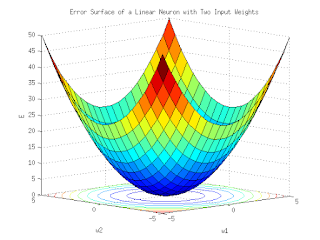Introduction to Linear Regression
Linear regression is one of the most fundamental and widely
used statistical techniques in data analysis and machine learning. At its core,
linear regression aims to model the relationship between a dependent variable
and one or more independent variables by fitting a linear equation to observed
data.
Mathematically, a simple linear regression model can be
represented as:
y = β0 + β1x + ε
Where:
· y is the dependent variable.
· x is the independent variable.
· β0 is the y-intercept.
· β1 is the slope of the line.
· ε is the error term.
In a multiple linear regression scenario, the equation
expands to:
y = β0 + β1x1 + β2x2 + .......... + βnxn + ε
Where x1, x2, ..., xn are
multiple independent variables.
The goal of linear regression is to determine the values of β0
and β1 (or β1, β2, ..., βn in the
case of multiple regression) that minimize the sum of squared errors between
the predicted values and the actual values.
Applications
of Linear Regression
Linear regression is a versatile tool used in various fields
to predict outcomes and analyze trends. Some of the key areas where linear
regression is applied include:
1. Economics: Forecasting economic indicators such as
GDP, unemployment rates, and inflation.
2. Finance: Modeling relationships between financial
metrics, such as risk and return.
3. Healthcare: Predicting patient outcomes based on
medical histories and other factors.
4. Marketing: Estimating the impact of advertising
spend on sales.
5. Real Estate: Valuing properties based on features
like location, size, and age.
6. Environmental Science: Assessing the impact of
environmental variables on climate change.
Linear
Regression in Stock Market Analysis
In the realm of stock market analysis, linear regression is
a powerful tool for predicting stock prices and understanding market trends.
Analysts use historical price data and various financial indicators to build
regression models that can forecast future stock prices.
How
Linear Regression is Used in the Stock Market
1. Trend Analysis: By examining the relationship
between time and stock prices, analysts can identify long-term trends and
potential turning points.
2. Price Prediction: Using historical data, analysts
can predict future stock prices by modeling the relationship between a stock's
past performance and various market factors.
3. Risk Management: Linear regression helps in
assessing the volatility of stock returns, aiding in the development of risk
management strategies.
4. Portfolio Optimization: By analyzing the
relationships between different stocks, investors can optimize their portfolios
for better returns.
Example:
Using Python to Predict Stock Prices with Linear Regression
Let's dive into a practical example where we pull data from
the National Stock Exchange (NSE) of India and use linear regression to predict
stock prices.
Conclusion
Linear regression is an invaluable tool for predicting stock
prices and analyzing market trends. It provides a straightforward yet powerful
approach to understanding the relationships between various market factors and
stock performance. While time series analysis is a widely used method in
predicting stock prices, we cannot overlook the importance of other machine
learning models, which offer diverse perspectives and can enhance predictive
accuracy.
Moreover, linear regression can be applied to momentum
indicators such as moving averages and relative strength indices (RSI) to
forecast stock prices further. These indicators help identify the strength and
direction of market trends, providing additional insights into future price
movements.
In the ever-evolving landscape of stock market analysis,
machine learning has brought new momentum and perspective, enabling analysts to
make more informed decisions and optimize their investment strategies.
Thank you for taking the time to read this post. If you
enjoyed the content and found it useful, please share it with others and follow
my blog for more insightful articles on data analysis and machine learning.
Happy investing🤑💲🤑!





No comments:
Post a Comment